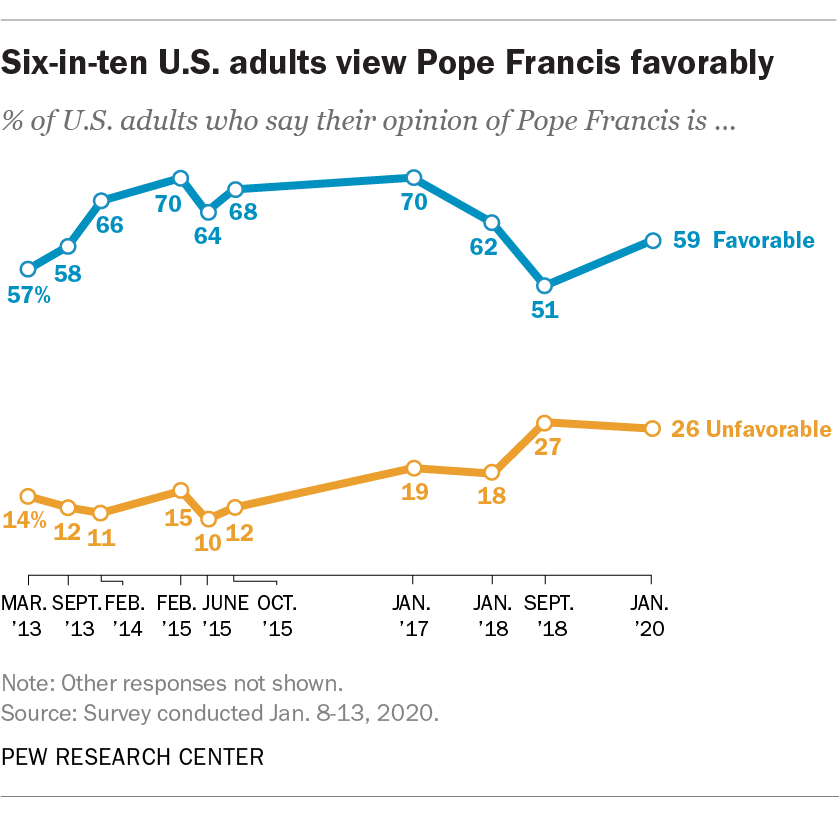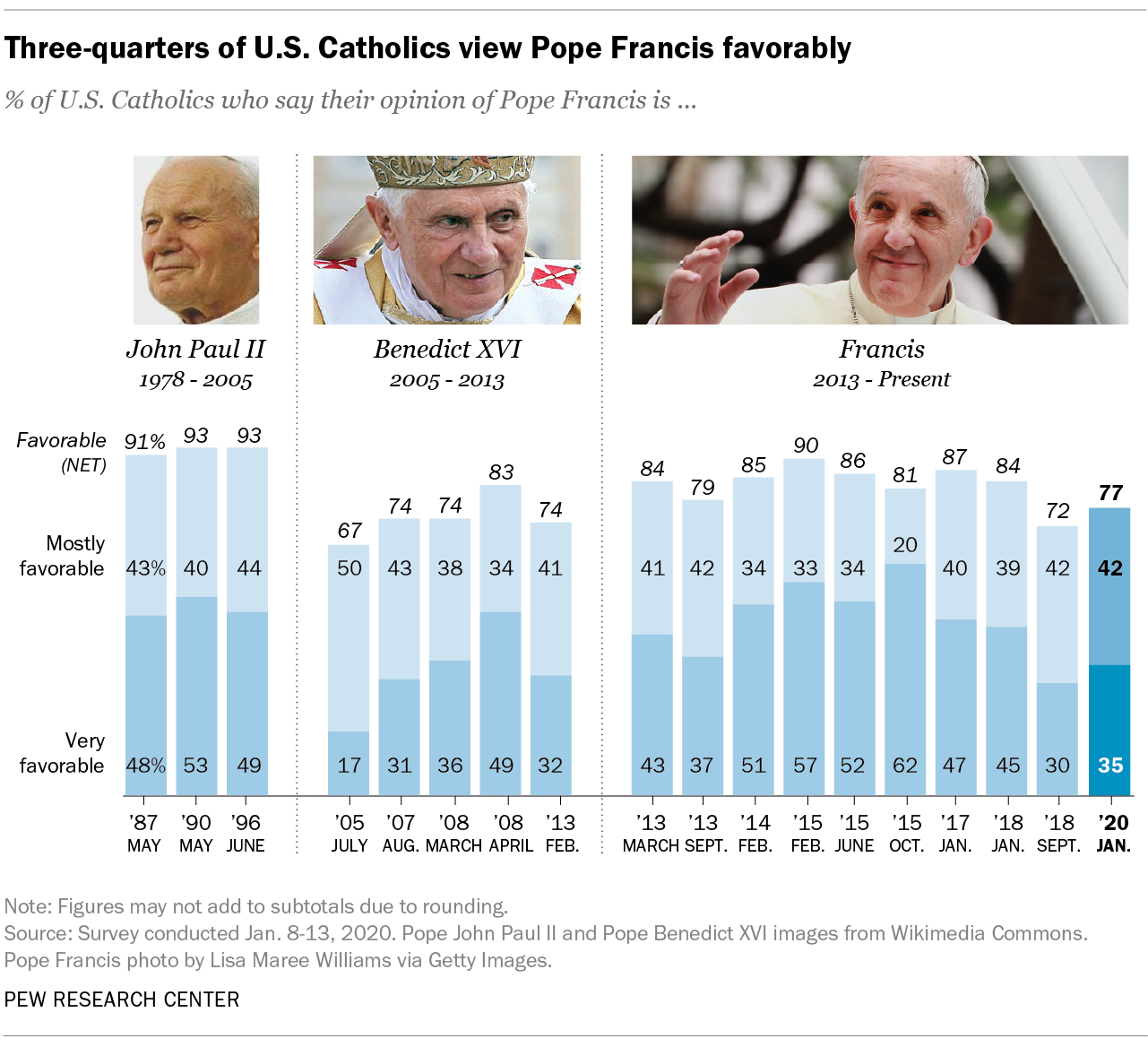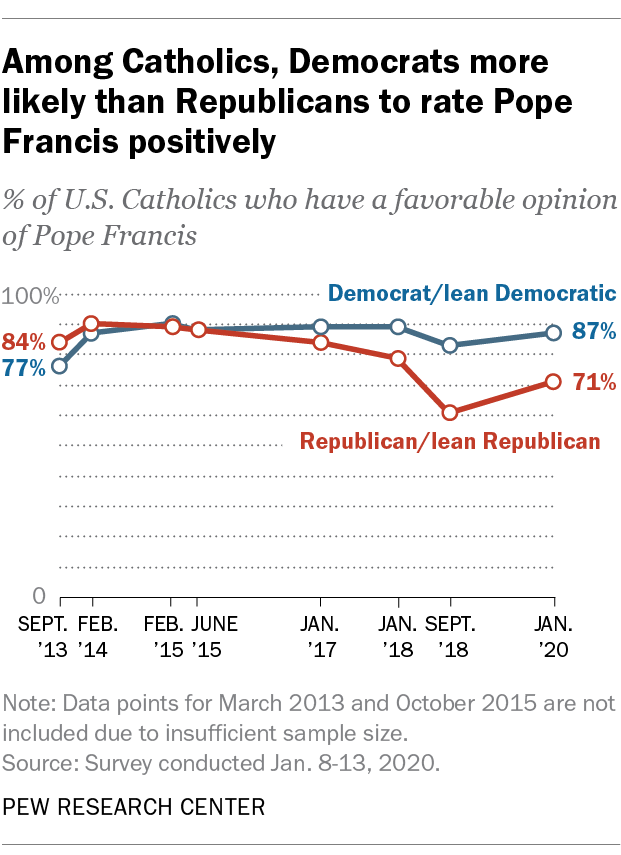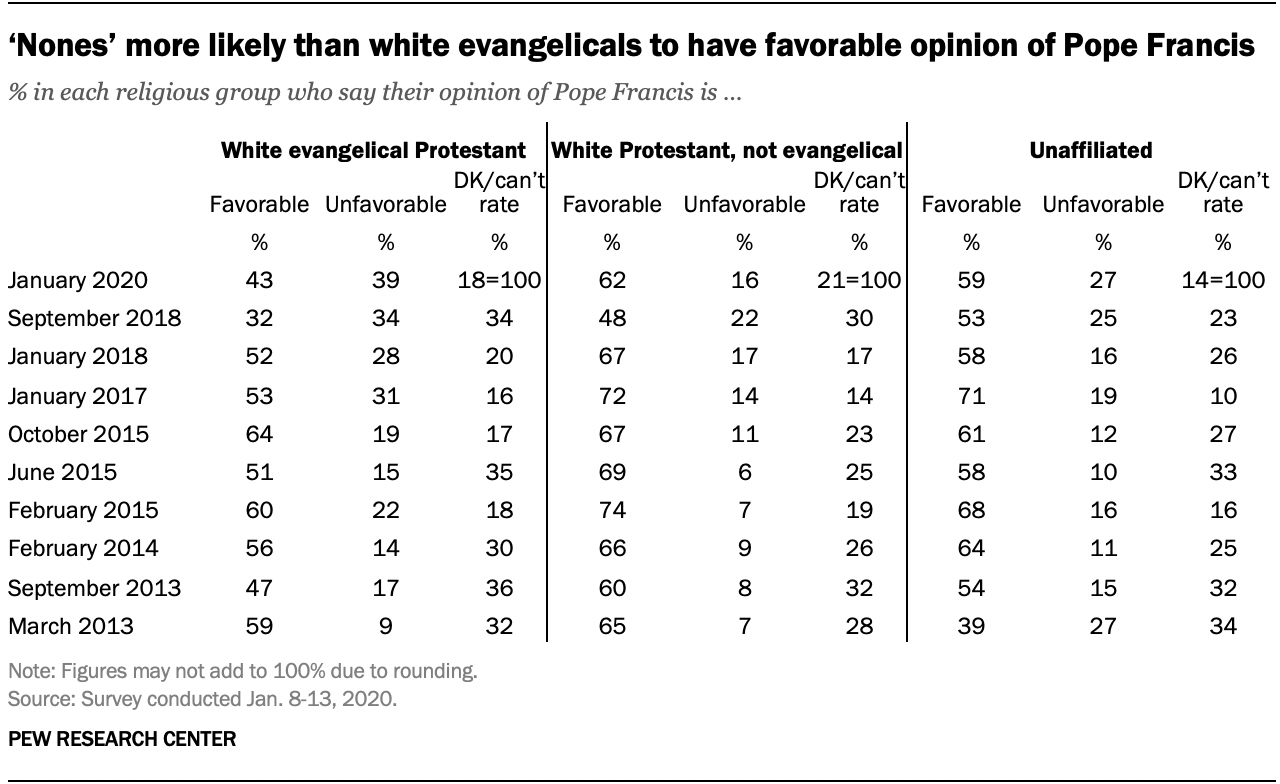Americans’ opinions of Pope Francis have rebounded slightly after hitting an all-time low almost two years ago in the wake of Catholic Church sex abuse scandals, according to a recent Pew Research Center survey.
 Six-in-ten U.S. adults say they have a “very” or “mostly” favorable view of Pope Francis, up from roughly half who said this in September of 2018, when the question was last asked. At that time, a Pennsylvania grand jury had just published a report revealing decades of child sexual abuse by Catholic priests, and former cardinal Theodore McCarrick had recently resigned because of separate sex abuse allegations.
Six-in-ten U.S. adults say they have a “very” or “mostly” favorable view of Pope Francis, up from roughly half who said this in September of 2018, when the question was last asked. At that time, a Pennsylvania grand jury had just published a report revealing decades of child sexual abuse by Catholic priests, and former cardinal Theodore McCarrick had recently resigned because of separate sex abuse allegations.
Overall, public opinion of Pope Francis is now roughly at the same level as when he assumed the papacy in 2013, but still below higher points in 2015 and 2017, when 70% of U.S. adults said they had a “very” or “mostly” favorable view of the pontiff.
For this post on views of Pope Francis, we surveyed 1,504 U.S. adults by telephone in January 2020. The survey was conducted in both English and Spanish over the phone under the direction of Abt Associates. Respondents to this survey were randomly selected via a combination of landline and cellphone random-digit-dial samples. To ensure the results of this survey reflect a balanced cross section of the nation, the data is weighted to match the U.S. adult population by gender, age, education, race and ethnicity and other categories.
Here are the questions used for this report, along with responses, and its methodology.

U.S. Catholics are more likely than the general public to have a positive assessment of Francis. About three-quarters of Catholics (77%) now view the pope favorably, which is 10 percentage points lower than the share who did so in January 2017 (87%) but not statistically different from the ratings recorded in January or September 2018. (Even though the 2018 and 2020 surveys produced different estimates of the share of Catholics who view Pope Francis favorably, the differences between the current survey and each of the surveys conducted in 2018 do not pass a test of statistical significance.)
Catholics who attend Mass weekly and those who attend less often have roughly similar views of Pope Francis, with about three-quarters in each group expressing a very or mostly favorable opinion of Francis (79% and 76%, respectively).
Partisan differences
 A January 2018 survey found growing partisan polarization in views of Pope Francis, with Catholic Republicans holding less favorable views of the pontiff than Catholic Democrats. That polarization persists today, with roughly nine-in-ten (87%) Catholic Democrats and Democratic leaners viewing Francis favorably compared with 71% among Catholic Republicans and Republican leaners.
A January 2018 survey found growing partisan polarization in views of Pope Francis, with Catholic Republicans holding less favorable views of the pontiff than Catholic Democrats. That polarization persists today, with roughly nine-in-ten (87%) Catholic Democrats and Democratic leaners viewing Francis favorably compared with 71% among Catholic Republicans and Republican leaners.
A majority (59%) of religious “nones” – those who describe their religious affiliation as atheist, agnostic or “nothing in particular” – rate Francis as either very or mostly favorable. This is much higher than the share (39%) who rated him favorably when he first became pope in 2013, though at that time roughly a third of “nones” were not familiar enough with Francis to rate him.
Among white Protestants there are varying levels of support for Francis. About six-in-ten white Protestants who do not identify as born-again or evangelical view Pope Francis favorably (62%). White evangelical Protestants, however, are less likely to share this positive view; 43% express a favorable view of Francis. Among white Protestants – both those who identify as evangelical and those who do not – favorable opinions of Pope Francis have increased since the decline seen in September 2018.

Note: Here are the questions used for this report, along with responses, and its methodology.




